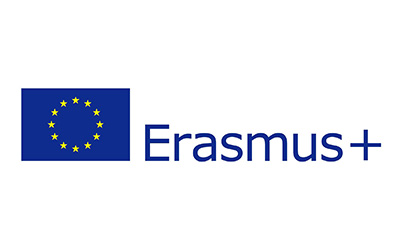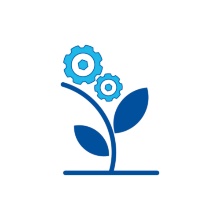Overview
- Ongoing projects:
- Completed projects
TIK is involved in various research and development projects. Our role is often the implementation of new developments in real production environments. We have particular expertise in the areas of network architecture, communication systems, data security, software development, e-learning infrastructures and interfaces.
Basic data: bwIDM2
Financed by:
Ministerium für Wissenschaft und Kunst Baden-Württemberg (MWK)
Project duration:
August 2021 - December 2024
Project status:
ongoing
Project partners:
Project details: bwIDM2
bwIDM2 - Security & Communities
New edition of the identity management project
The state's universities provide a large number of distributed services and resources. These are offered to members via the access mechanisms developed in the bwIDM project. This federative identity management serves as a model for other federal states. The range of state services available today spans areas from HPC to data and resource management to online courses. The services have successively defined requirements for the central software platform, which has been expanded by many functionalities since the end of the project.
The bwIDM2 project is dedicated to the increased requirements for IT security and takes current technical developments into account. It creates the prerequisites for the integration of services across all higher education institutions and establishes a group/role administration for supra-regional and national communities with delegation mechanisms. In addition, specialist concepts for the integration of a long-term personal identifier in bwIDM, as required for use in research data management, are being developed.
Project website https://www.bwidm.de/bwidm2.php
Basic data: bwCampusnetz
Financed by:
Ministerium für Wissenschaft und Kunst Baden-Württemberg (MWK)
Project duration:
January 2023 - December 2025
Project status:
ongoing
Project partners:
Project details: bwCampusnetz
In the bwCampusnetz project, the universities of Karlsruhe (KIT), Constance, Mannheim, Stuttgart and Ulm are working together to examine the universities' campus networks with regard to their future viability. The aim is to find future-proof concepts and investigate and demonstrate their practical feasibility through prototype implementations.
The focus is on the further development of network architecture and network design, with a particular focus on segmentation, wireless LAN, VPN and firewall. A network of the future is to be measured by the quality characteristics of security, scalability, reliability, manageability and automation of the network. The existing networks are to be adapted to the growing requirements and the requirements of the BSI IT baseline protection.
The project builds on the successful collaboration in the bwIPv6@Academia project. The aim is to further strengthen the pioneering role already achieved with IPv6 throughout Germany in the area of campus networks.
TIK is responsible for the network access harmonization work package, in particular for the convergence of wired and wireless access networks with regard to IT security and administration.
Basic data bwILIAS
Financed by:
Ministerium für Wissenschaft, Forschung und Kunst (MWK)
Project duration:
October 2021 - September 2024
Project partners:
- Universität Hohenheim
- Universität Freiburg
Project details: bwILIAS
Strengthening open source software for university teaching
The bwILIAS project concentrates on optimizing the ILIAS learning platform in three focus areas
● Expansion and extension of ILIAS as a digital examination system with a view to the special features and workflows of the university examination cosmos
● Provision and further development of interfaces to other learning platforms and for linking other relevant university IT systems
● Sustainably maintaining and ensuring the stability and quality of the ILIAS program code through refactoring and urgent bug fixes
Basic data PePP
Financed by:
Project duration:
August 2021 - July 2024
Project partners:
- Universität Heidelberg
- Universität Hohenheim
- Universität Freiburg
- KIT Karlsruher Institut für Technologie
- Universität Konstanz
- Universität Mannheim
- Universität Tübingen
- Universität Ulm
- An der Universität Stuttgart intern:
- Institut für Erziehungswissenschaft
- ZLW
Project details: PePP
Partnership for innovative e-exams
With “PePP”, all Baden-Württemberg universities are jointly pursuing the goal of systematically tapping into the previously untapped potential of electronic examinations for students and teachers and making existing experience more widely available. Electronic examinations have become increasingly relevant during the coronavirus pandemic. The task now is to transform successful approaches into sustainable solutions.
With “PePP”, technical and didactic innovations are being (further) developed in real-world laboratories and rolled out at several universities, tested under various technical, infrastructural and organizational conditions and further developed and scaled in a quality-oriented manner. The aim is to strengthen competence orientation, increase mobility and flexibility and make examinations more learner-centered. Cross-sectional clusters provide impulses for university didactics, support the qualification of teachers and generate feedback on the quality of e-exams.
Basic data digit@L
Financed by:
Project duration:
August 2021 - July 2024
Project partners:
The project is supported in terms of content and structure by a large number of facilities, institutes and teaching staff at the University of Stuttgart.
Project details: digit@L
“Digital teaching and learning at the University of Stuttgart. BOOST.SKILLS.SUPPORT”
The digit@L project focuses on students in the important first year of study and the target group-specific differentiation of basic courses in digital settings. Students are to be supported in their individual learning process in view of their heterogeneous prerequisites by means of digitally enriched teaching/learning formats and adaptive systems. At the same time, the university is specifically expanding the skills profile of students and lecturers through the closer integration of didactic and (media) technical infrastructure. The project is divided into three sub-projects: Digital BOOST for success and motivation in the first year of study (digitally enriched learning opportunities), Digital SKILLS for skills for the digital transformation (key skills for digital literacy) and Digital SUPPORT for infrastructure and service offerings (expansion of technical infrastructure and addition of innovative elements).
Basic data MakEd_digital
Financed by:
Bundesministerium für Bildung und Forschung (Qualitätsoffensive Lehrerbildung)
Project duration:
2020 - 2023
Project details: MakEd_digital
Make Education digital
The project aims to develop the digitalization-related skills of (future) teachers to use, develop and reflect on digital media and tools in teaching and learning contexts. We want to increase these skills by establishing pedagogical-didactic makerspaces at the partner universities. In the makerspaces, students and teachers on teacher training courses receive support in the creation, use and reflection of digital materials in the classroom. Helpful expertise is provided by employees with backgrounds in media technology, pedagogy and didactics, educational science and subject didactics.
Project details: SusI
SusI stands for Sustainable infrastructure for the improved usability and archivability of research software on the example of the porous-media-simulator DuMux. The aim of the SusI project is to make the open source simulation software DuMux available to a wider circle of scientists. In addition, the knowledge gained through the use of DuMux, together with the source code, is to be stored, accessed and reused in the research data management system of the University of Stuttgart.
Basisdaten VipLab
Finanziert durch:

Universität Stuttgart
Projektstatus:
abgeschlossen, in regulären Dienst überführt
Weitere Informationen:
Project details: ViPLab
Virtual Programming Lab
The ViPLab development project includes a browser-based programming environment, computing backends on TIK servers, and a communication middleware. Originally initiated by students and funded by tuition fees, ViPLab has been actively used in teaching since 2010. The integration of practical tasks into engineering education, e.g., through the use of complex simulation software, as well as a unified programming environment for practice and exam situations are the goals and advantages of ViPLab.
In addition to operating ViPLab as a service, its components are actively being further developed. For example, a student project is currently working on converting the computing backends to a modern container architecture. Furthermore, the SusI project is developing a new use case: the executability of software for a scientific publication with the help of ViPLab.
Basic data AduLeT
Financed by:

EU program Erasmus+
Project duration:
completed
Project partner:
- PH Ludwigsburg
- HUMAK University of Applied Sciences
- Open University Netherlands
- Polytechnic Institute of Bragança
- Complutense University of Madrid
- John von Neumann University
- TU Delft
- Pixel
Project website:





